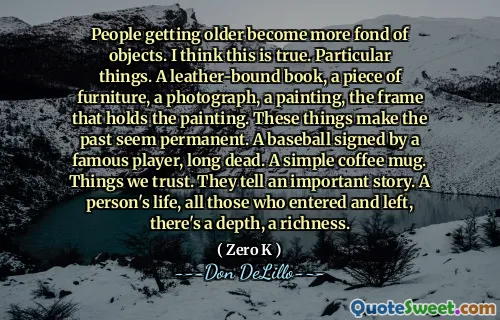"Zero K" by Don DeLillo explores themes of mortality, technology, and existentialism through the story of Jeffrey Lockhart, whose father is participating in a cryogenic freezing process to escape death. The narrative unfolds in a mysterious facility where affluent individuals hope to achieve immortality. Jeffrey grapples with the implications of his father's choice and his own feelings of loss and acceptance.
The novel presents a critique of contemporary society's obsession with technology and the desire to overcome natural limitations. Through philosophical dialogues and character interactions, DeLillo examines how these choices affect human relationships and the essence of what it means to live and die. The cold, sterile environment of the facility serves as a metaphor for the emotional distance between characters.
DeLillo's rich prose and complex themes invite readers to contemplate the value of life and the nature of existence in an increasingly tech-driven world. As Jeffrey navigates his father's decision, he reflects on the inevitability of death and the human experience, ultimately seeking connection and understanding amidst the uncertainties of life and afterlife.
More »
Today Birthdays
1965 -
Nicholas Sparks
1946 -
Diane von Furstenberg
1943 -
John Denver
1874 -
Holbrook Jackson
1830 -
Alexander Smith
1937 -
Anthony Hopkins
1908 -
Simon Wiesenthal
1941 -
Alex Ferguson
1878 -
Elizabeth Arden
1995 -
Gabby Douglas
1977 -
Psy
1944 -
Taylor Hackford
1964 -
Gong Li
1962 -
Lance Reddick
1880 -
George C. Marshall
1954 -
Eric Schneiderman
1990 -
Patrick Chan
1959 -
Val Kilmer
1943 -
Ben Kingsley
1950 -
George Thorogood
1948 -
Donna Summer
1963 -
Scott Ian
1953 -
Jane Badler
1958 -
Bebe Neuwirth
